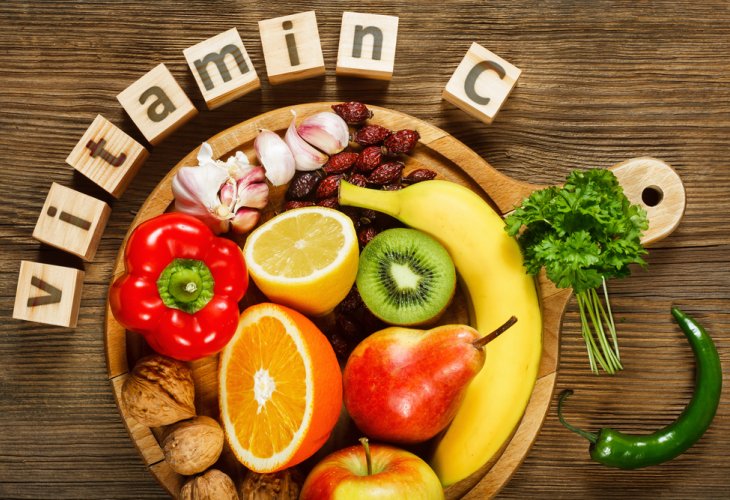Vitamin C: The Essential Nutrient You Might Be Missing
Feeling extra tired, having dry skin, or experiencing mood swings? These are just some signs you might be low on Vitamin C. Here's what you need to know.
 (Photo: Shutterstock)
(Photo: Shutterstock)We all know Vitamin C is important, and that it's found in oranges and various citrus fruits. But are we aware that a lack of Vitamin C can be dangerous, and how crucial it is to include it in a balanced daily diet to prevent diseases? Everything you didn't know about Vitamin C but should have asked.
What Exactly Is Vitamin C?
Vitamin C is an essential vitamin and a powerful antioxidant that should be part of our daily intake. Vitamin C helps protect the body from accumulating free radicals, and needs to be consumed daily for a simple reason: it is water-soluble and gets flushed out of the body every time you use the bathroom.
 (Photo: Shutterstock)
(Photo: Shutterstock)
Symptoms of Vitamin C Deficiency
1. Dry Skin
Our skin, the largest organ, needs protection. Vitamin C aids in skin elasticity and in producing oils that act as a moisture barrier. Alongside sunscreen, Vitamin C even helps prevent sunburn.
2. Slow Wound Healing
There is a direct link between Vitamin C deficiency and slow wound healing. Vitamin C is necessary for collagen synthesis which leads to wound recovery. Without it, healing is slow, leading to keloids (visible and itchy scars), and reduced elastin development—a protein with elastic properties allowing tissue to return to its shape after stretching or contracting.
3. Bleeding Gums and Tooth Loss
Bleeding gums often indicate gum disease. Gingivitis can lead to tooth loss. Lack of Vitamin C can also cause gum bleeding, but adding Vitamin C to your diet easily prevents this.
4. Frequent Bruising
Some bruise easily, without much cause. A surprising reason for frequent bruising is low levels of Vitamin C. It's worth requesting a Vitamin C test from your doctor, although not common or easily approved by all health providers, it's worth trying.
5. Lowered Immunity
Vitamin C is vital for proper immune function and can alleviate cold symptoms. Vitamin C protects by creating a shield against pathogens leading to diseases. If illness and colds are frequent, just add Vitamin C to your diet regularly.
6. Fatigue
Fatigue is a common sign of deficiency in many vitamins. A study using intravenous Vitamin C showed a significant improvement in fatigue within just two hours of injection. High-quality Vitamin C supplements can combat fatigue, improving significantly with regular intake, along with diet changes.
When experience extreme fatigue, check blood levels for essential energy vitamins and minerals, like Vitamin C and B12.
 (Photo: Shutterstock)
(Photo: Shutterstock)7. Mood Changes
Vitamin C can significantly affect mood quality. Although mood changes are influenced by many factors, evidence shows Vitamin C deficiency as influential. Studies on men aged 18-35 show a link between low Vitamin C and worsened mood. Those with higher blood Vitamin C had better mood scores compared to others.
8. Anemia
Anemia can come from several causes, with iron deficiency being a common one. Still, a lack of Vitamin C also contributes to anemia. Vitamin C boosts iron absorption, directly linking anemia to lack of this potent antioxidant. Frequently, doctors recommend taking iron with Vitamin C for better absorption.
* * *
On a personal note: Modern medicine, unfortunately, underestimates (for various non-medical reasons) the importance of Vitamin C in the patient's diet. Many sources, including books and expert sites researched independently or through foreign studies, highlight Vitamin C's importance. It's not the place to link these resources, but those wise will seek. Anyone keen on health will find strong evidence that adequate Vitamin C levels are crucial, alongside Hashem's help, for a healthy life, free of infections and diseases.
To your health.

